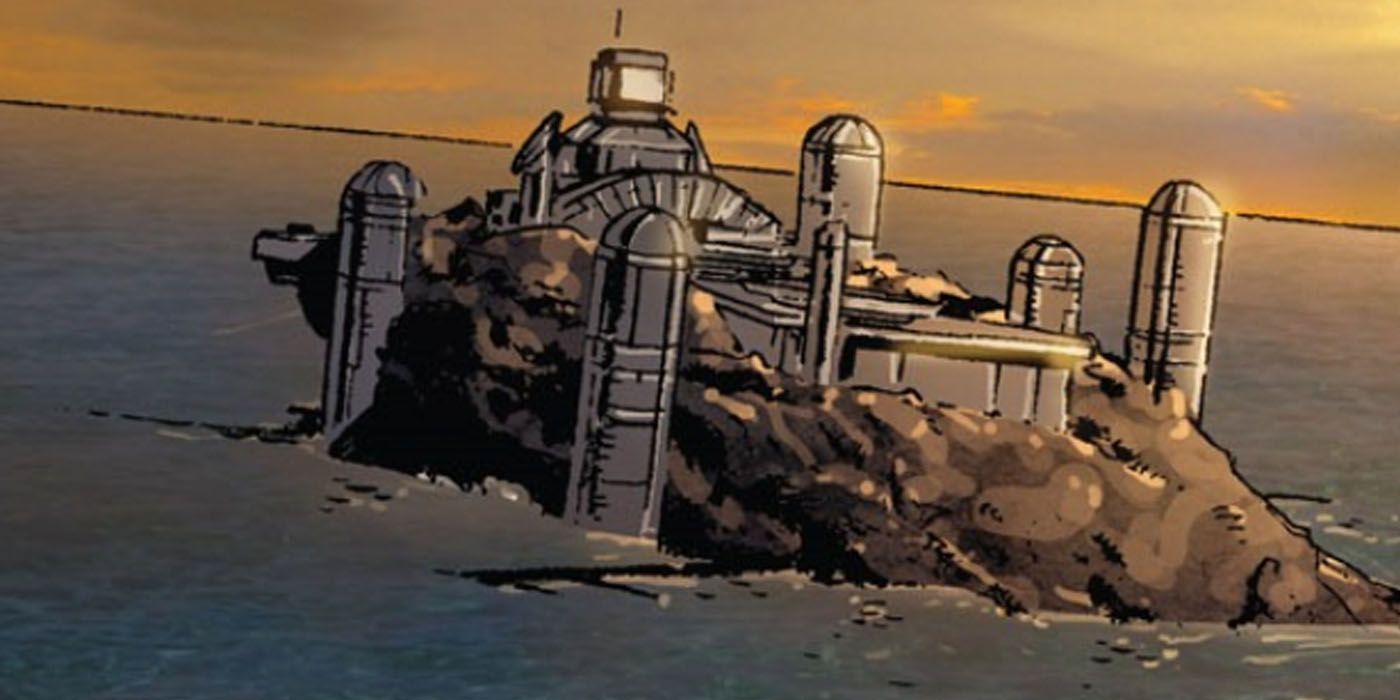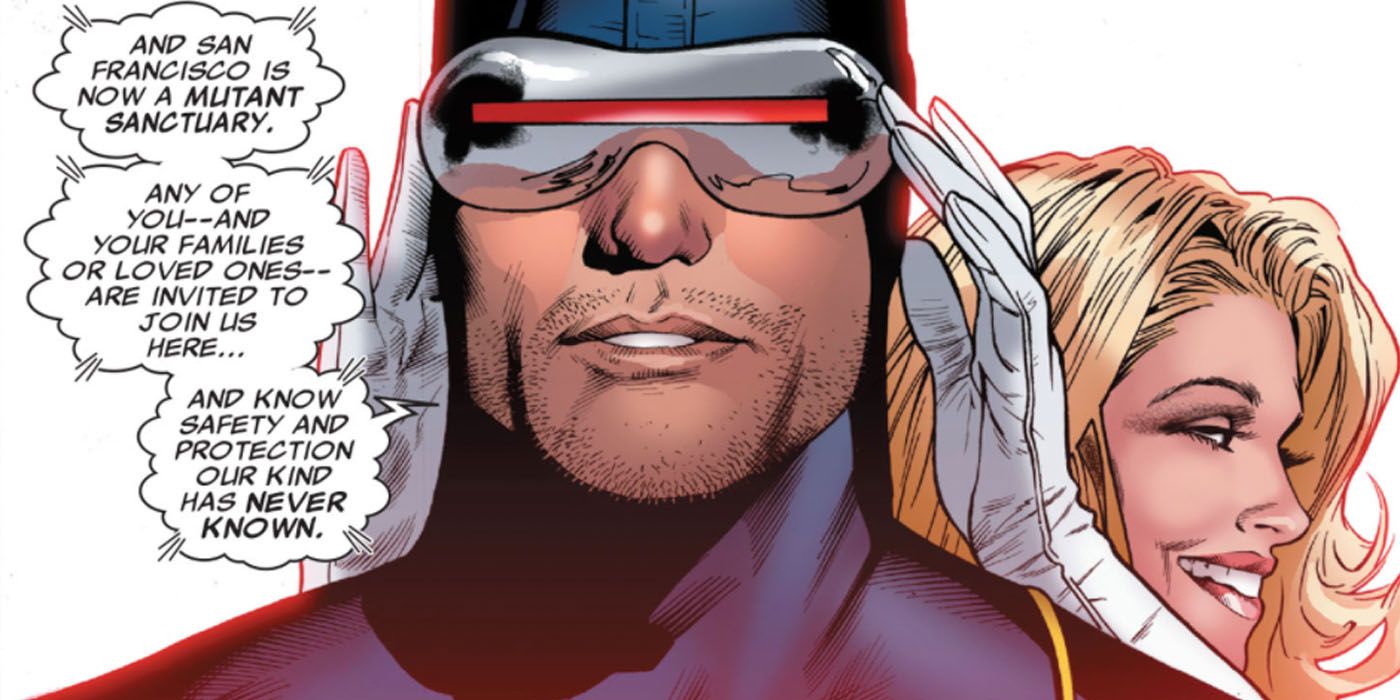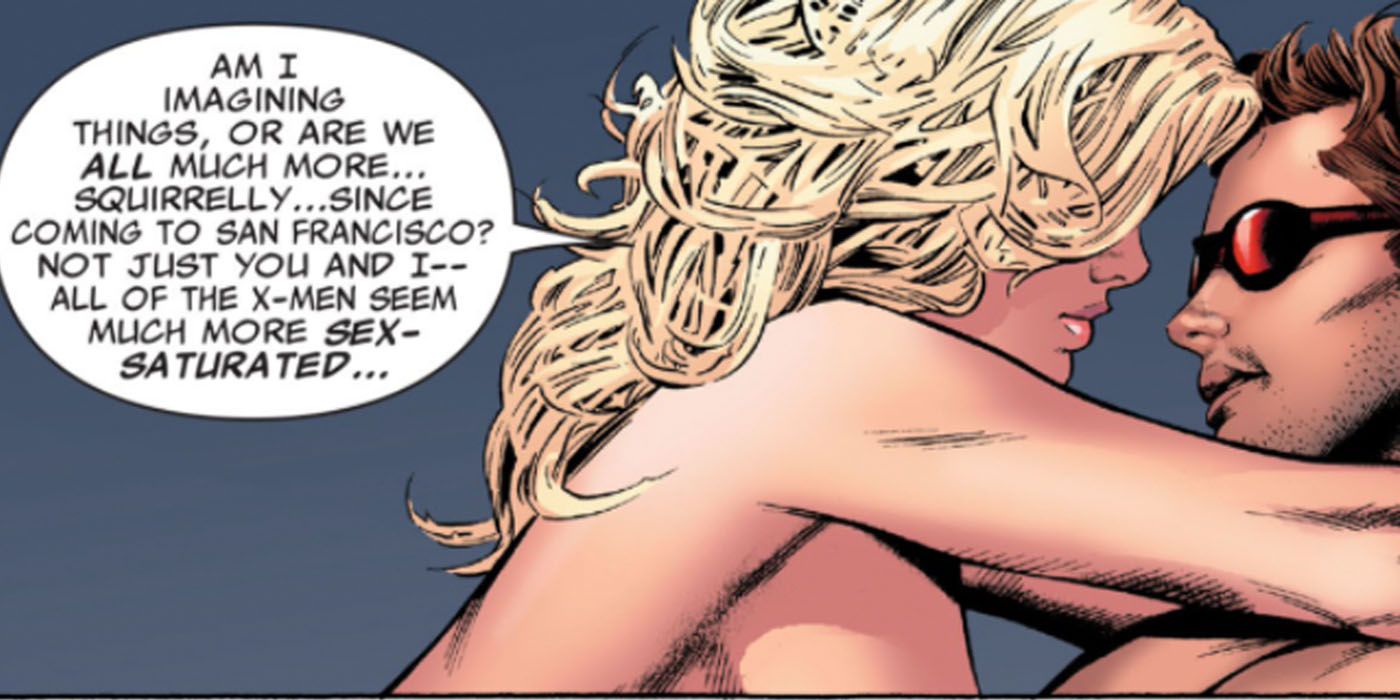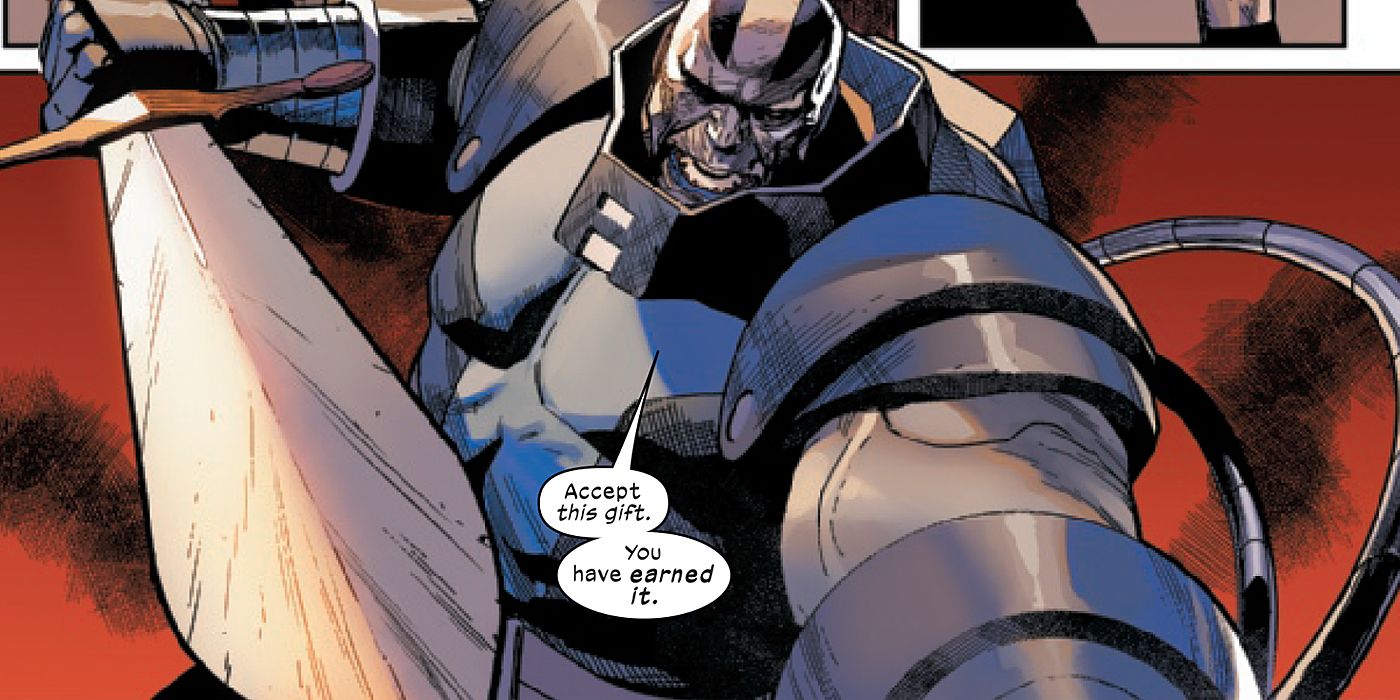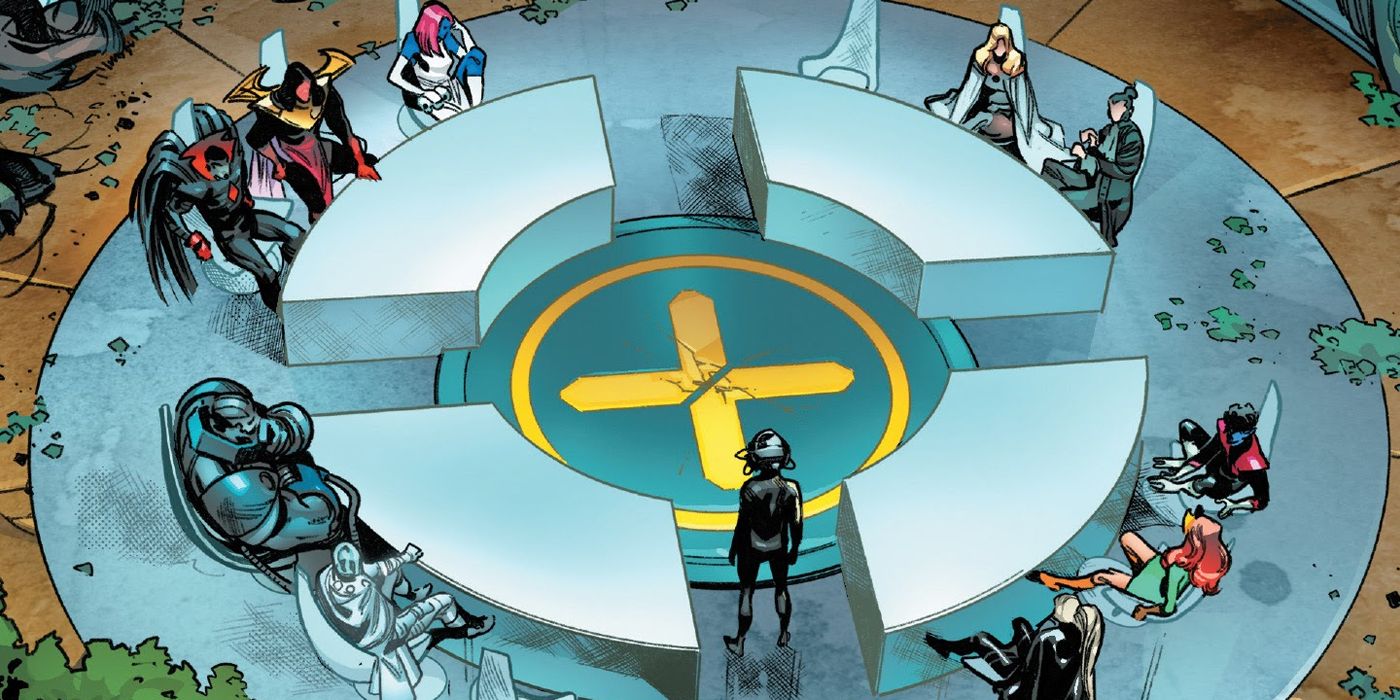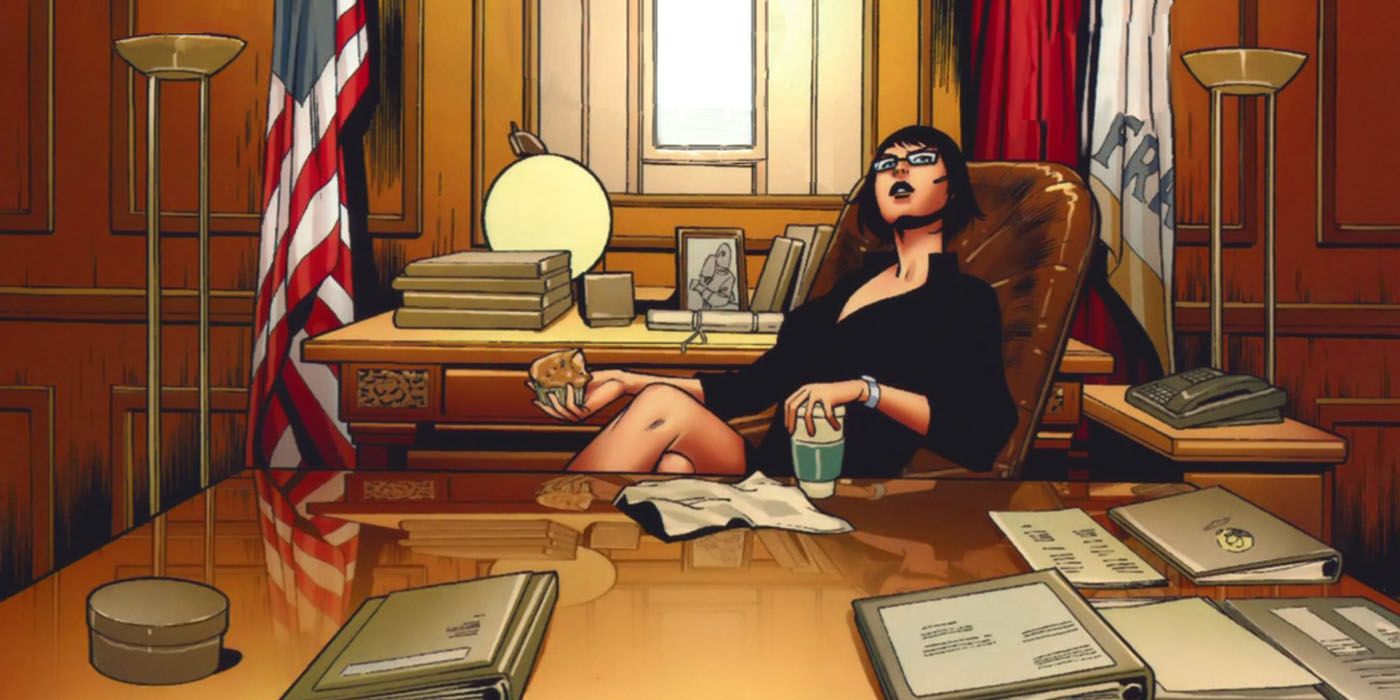While the X-Men's new status-quo on the mutant nation-state Krakoa may seem like a huge shift, it actually has a lot in common with its predecessor, Utopia. The island of Utopia first appeared during Matt Fraction's tenure as the lead X-Men writer. The island was a mutant safe haven off the coast of San Francisco, made from the destruction of Magneto's Asteroid M. In many ways, Krakoa has taken familiar Utopia ideas, but elevated them to an extreme.
A Safe Haven for All Mutants
On Utopia, one of Scott's earliest messages declared the island as a safe haven for all mutants, since the population had dwindled significantly after M-Day. Villains like Scalphunter tried to take advantage of this and were hired by mutant-hating foes to take down the island from the inside.
Most notably, Magneto wanted into Utopia's mutant sanctuary. However, Scott didn't initially trust him (or any of the other villains) and Magneto had to prove he was true to his word. He did so by rescuing Kitty Pryde from the space bullet she was trapped in following Astonishing X-Men.
Krakoa is also a mutant sanctuary for all, however, Krakoa doesn't seem to care about the severity of its citizens' past crimes. Not only are notable villains like Mister Sinister, Sebastian Shaw and Apocalypse given seats of power on the Quiet Council, but most mutants don't seem to display any trust issues with them yet.
Make More Mutants
On Utopia, Scott and Emma have a post-coital conversation about how "sex-saturated" all the mutants seem to be now that they've moved to their own private island. Scott remarks that there was a mutant birth and that's lifted their spirits, inspiring them to try and quite literally "make more mutants" as well. However, it's hardly a major plot point in Utopia.
On Krakoa, "Make More Mutants" is an actual law -- which raises some uncomfortable questions about consent -- and the "squirrelly" nature of the mutants is often referenced. Krakoa also literally creates life, with the Five resurrecting dead mutants. There are also hints of Sinister beginning work on his Chimera projects soon, giving a much more literal meaning to "Make More Mutants."
M-Day
Scott declares Utopia is "a place where our kind -- all our kind, powered or depowered -- can find protection and education." Several M-Day victims are seen on the island, including Jubilee and Mirage. They are welcomed and treated as equals.
On Krakoa, M-Day victims are offered the chance to regain their powers through a method called "Crucible." Here, Apocalypse brutalizes and beats mutants to death, making them prove themselves worthy to be a part of Krakoa and mutantkind. This brutal ritual is performed in front of guests for spectacle.
Government
Utopia never had strong government foundations. Scott was the de-facto leader, but mostly because he was leading the X-Men. Nation-building was often discussed amongst the X-Men, including members like Storm, Emma Frost and even Magneto. However, there was no official "government" set in place.
Krakoa, on the other hand, has found a group of individuals to serve on the Quiet Council. Laws are created and there is a more concrete penal code in place for those who break Krakoan law.
On Utopia, most of the time, Scott admits he's playing things day by day, unsure of his next move, because it's mainly about surviving. On Krakoa, Charles and company seem much more interested in creating a permanent solution with more concrete laws and systems.
Mutant-Human Relations
A huge difference between Krakoa and Utopia is how the nations view mutant-human relations. On Utopia, humans were necessary to its foundation. Humans like Stryker were responsible for driving the X-Men out of their Graymalkin home, but so too were superhumans like Wanda Maximoff after M-Day rendered mutants near-extinct. Humans -- most notably San Francisco Mayor Sadie Sinclair -- also helped the X-Men build their new sanctuary.
Sadie not only gave Scott the supplies and support to start Utopia, but Scott often relied on her for continuous support. Kavita Rao was also instrumental, helping the scientists of the island with many tasks to help keep their safe haven running.
On Krakoa, the human-mutant relationship has reached a new point of hostility. Some humans like Shogo (Jubilee's son) and Kyle Jinadu (Northstar's husband) are allowed, but there are much stricter guidelines for interacting with the community. Krakoa seems more interested in the idea of "every mutant for themselves," even if it means separating Franklin Richards from his human family. It is truly a mutant nation-state in every sense; only mutants can even access the island's entry portals.
While both Utopia and Krakoa are sovereign, the Krakoan drug trade has provided it with the leverage it needs to be recognized as a fully autonomous nation-state, something Utopia never had. However, the nature of said drug trade also means mutants are actively choosing not to rescue some humans. If a country chooses not to recognize Krakoa, their citizens don't get life-saving drugs. This is something that will almost certainly strain future mutant-human relations.

